Who DOGE Hurts: Gutting NOAAOn March 12, there was reporting that the National Oceanic and Atmospheric Administration (NOAA) was preparing to lay off more than 1,000 workers as part of the Trump administration's "reductions in force" directive to federal agencies. Cuts like that call into question whether NOAA will continue to provide the early warnings and predictive modeling that help people prepare for weather emergencies in advance. People who live in hurricane and tornado country keep their “NOAA weather radios” handy, and they are especially important for events that occur, as they frequently do, when most of us are asleep. In theory, it sounds like one more bad thing to worry about. In practice, it’s much worse. We’ve just had a demonstration of precisely how effective NOAA is and what we stand to lose without it. Beginning on Friday, violent, long-track tornadoes with damaging winds of up to 80 mph and large hail materialized across the Midwest and South. This was the news Friday night. NOAA’s early warning system, transmitted on social media, radio, television, and by word of mouth, kept it from being much worse. Saturday was even worse. Here in Birmingham, the alerts started midday. At 12:27 pm, I got the first alert through the UA campus system, telling me that in light of what was expected, I should seek shelter now instead of waiting for an actual tornado warning. The system sends alerts after the National Weather Service makes the call about what to expect. The National Weather Service (NWS) is a component of the National Oceanic and Atmospheric Administration (NOAA). We’ve grown accustomed to getting this level of detail. NOAA’s information gets pushed out ahead of these events, causing people to plan in advance. Hard helmets were in short supply here yesterday as people prepared for the storms. We were relatively lucky in Birmingham. But other places were far less fortunate. By Saturday morning, ABC News reported 36 people were dead in the wake of the storms. This was what the devastation looked like in Tylertown, Mississippi. As I’m writing this, the storm is heading east into Georgia. How much worse would it have been without the accurate forecasting that let our local news people and local emergency systems warn folks in the storms’ paths sufficiently in advance to get to their safe places? As much as I don’t like to think about it, if Trump and DOGE stay on their current path, we are going to be forced to. Mother Nature doesn’t care who you voted for. If there’s a tornado headed your direction, you need access to early warning systems. Gutting NOAA means you won’t have that.
At 8:52 p.m., local television in central Alabama pushed out a message from the National Weather Service: Talladega, take cover now. It was a tornado on the ground near the famous Superspeedway. Alerts meant people were able to stay safe, which is a good thing—this photo of a bus that ended up on the roof of a nearby high school makes it clear that these early warning systems are critically important. What happens if the National Weather Service is no longer there to do that? Apparently, the Trump administration is not concerned with that. ABC is reporting that NOAA is down about 2,000 employees since January “as a result of the first round of the Trump administration's cuts.” California Congressman Jared Huffman, who chairs one of the relevant House subcommittees, said, "There is no way to absorb cuts of this magnitude without cutting into these core missions. This is not about efficiency and it's certainly not about waste, fraud and abuse. This is taking programs that people depend on to save lives and emasculating them." Cuts that sound like a good idea to Elon Musk and Donald Trump have real impacts on the rest of us. That is only just beginning to dawn on people, who I’m sure you’re hearing, like I am, saying, “But I didn’t vote for this.” Trump 2.0, as I’ve written previously, isn’t a pick-your-own-adventure experience. You go to the carnival, you get all of the rides. We were fortunate last night. Everyone in our house (chickens included) is okay, we just have a little cleanup to do. But so many people weren’t that lucky. They lost houses and lives. They will need support from FEMA and other federal services. If DOGE continues its romp through essential federal work that we, as taxpayers, fund and rely on, it’s only going to get worse. When will Republicans wake up? Will their Senators and members of Congress protest what DOGE is doing? Will they even fight for their own backyards? If they continue to bend the knee on this, then instead of demanding that government work for their constituents, they are permitting it to work for the financial interests of the powerful. We know what to do about this. With this piece, and the one Friday night about an Idaho Fair Housing Council that I hope you’ll go back and read if you missed it, we’re putting a face on the people DOGE hurts. It’s not about waste and fraud; it’s about people. People who need their government to work for them. Here’s the phone number for the House switchboard: (202) 224-3121. Here’s that number for the Senate: (202) 224-3121. Make sure your representatives know how you feel. Thank you for being part of Civil Discourse. Your support makes the newsletter happen, and your questions, ideas, and suggestions are the inspiration behind it. So, I have a favor to ask. If you aren’t already, please consider becoming a paid subscriber. For $6 a month or $50 a year, you can contribute towards the resources it takes to research and write the newsletter. As Americans, we’re all trying to answer the question, “What can I do to help save our democracy?” My hope is that Civil Discourse provides you with the information and ideas you need to be part of holding the line. More than 590,000 people subscribe to Civil Discourse, and that number grows every day. We’re in this together, Joyce |

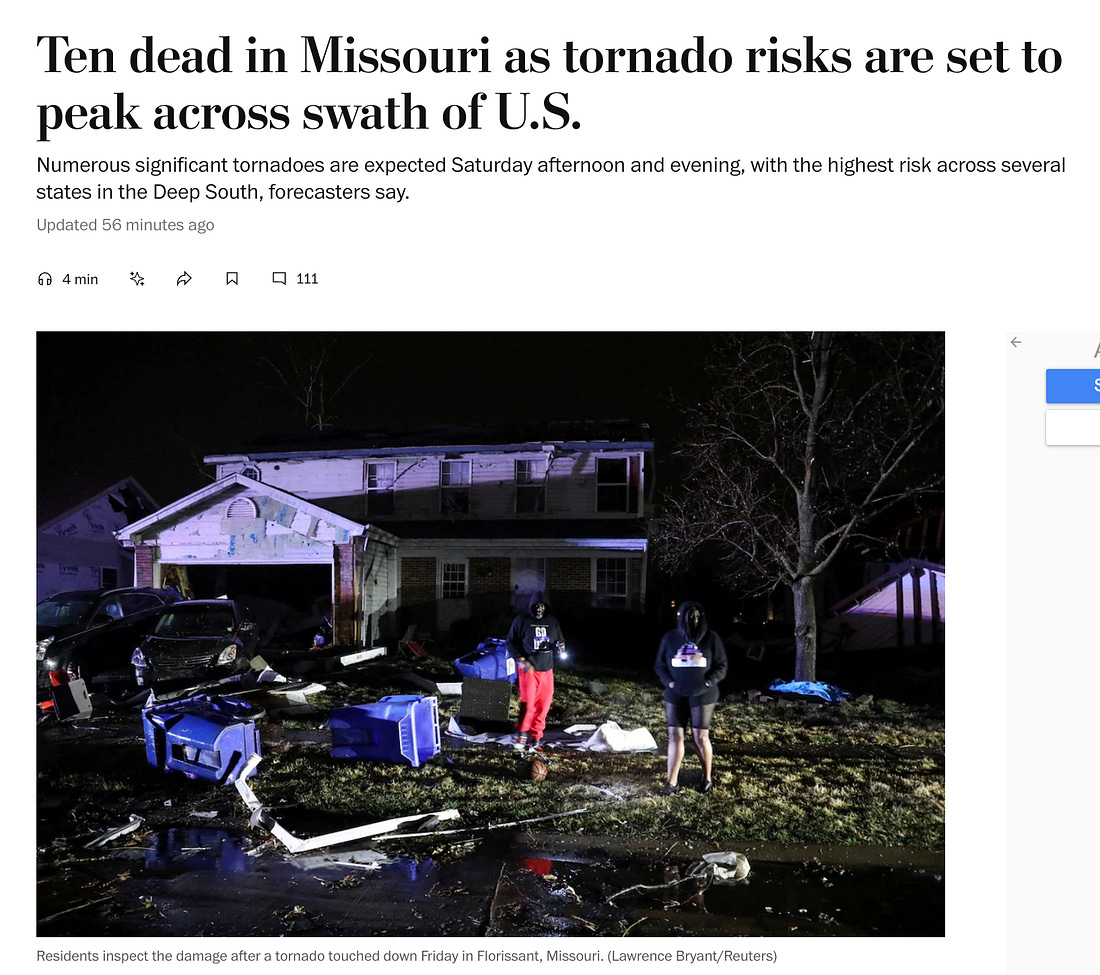
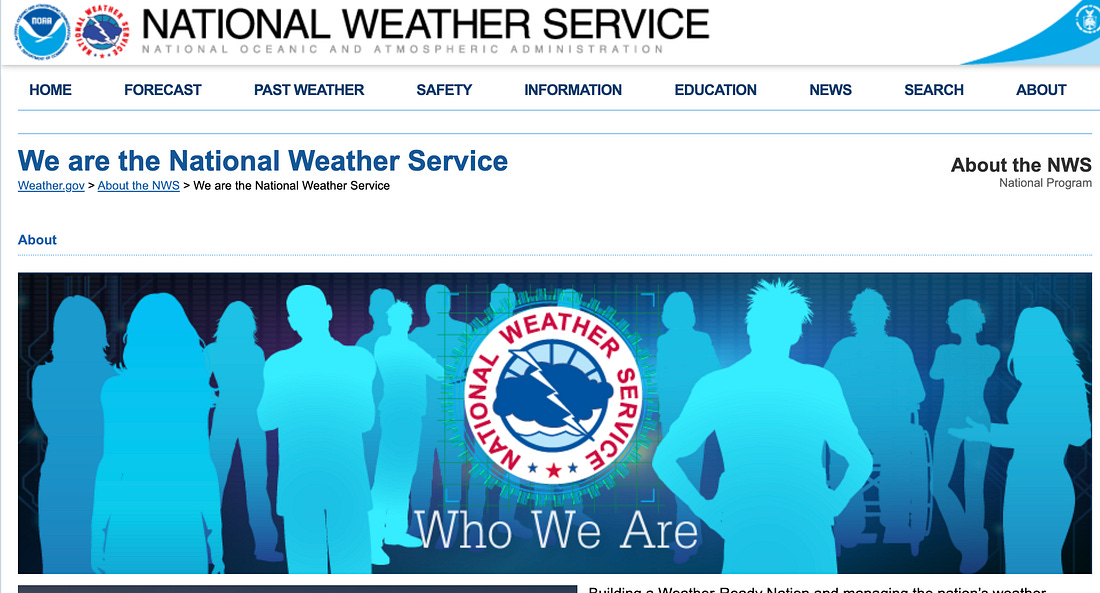
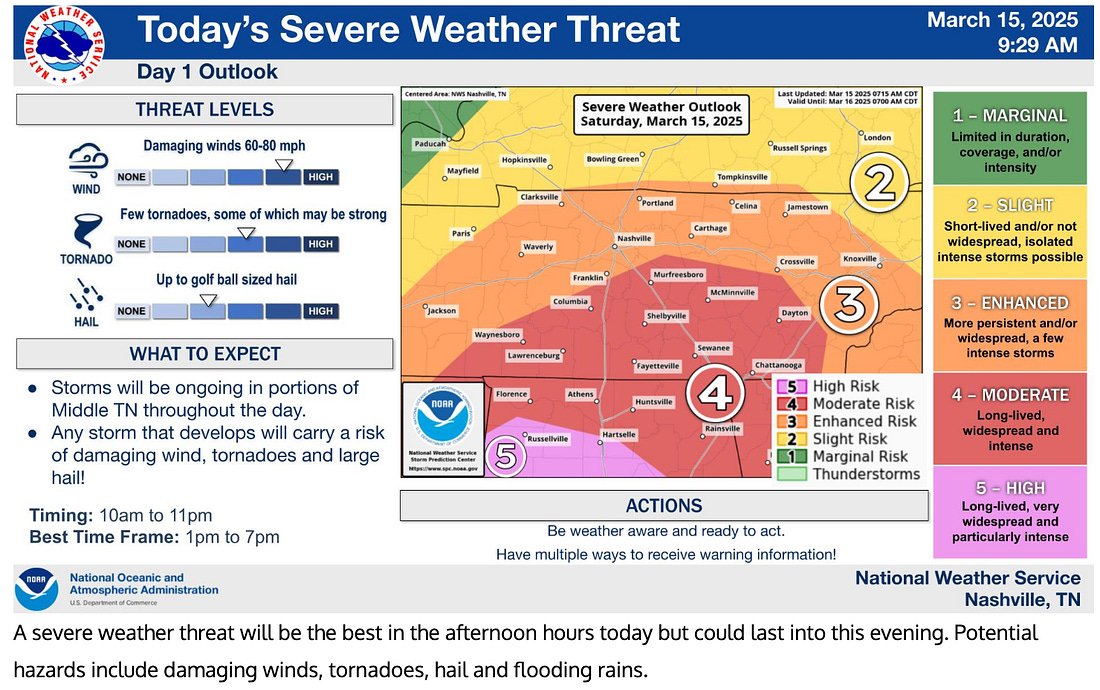
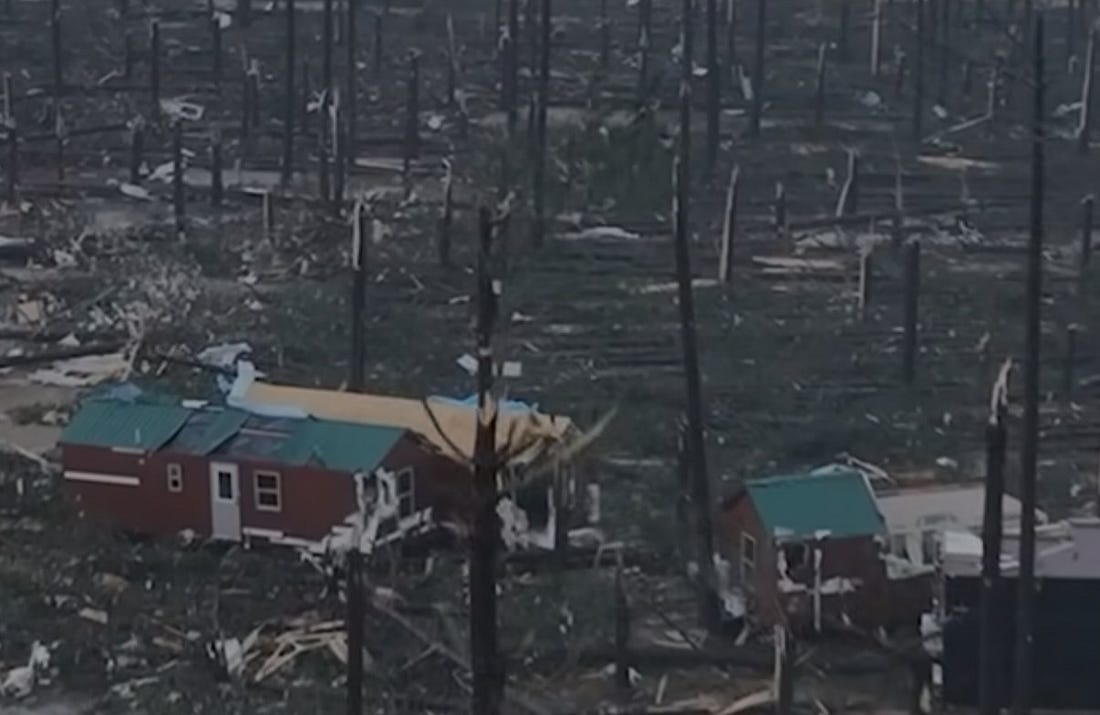
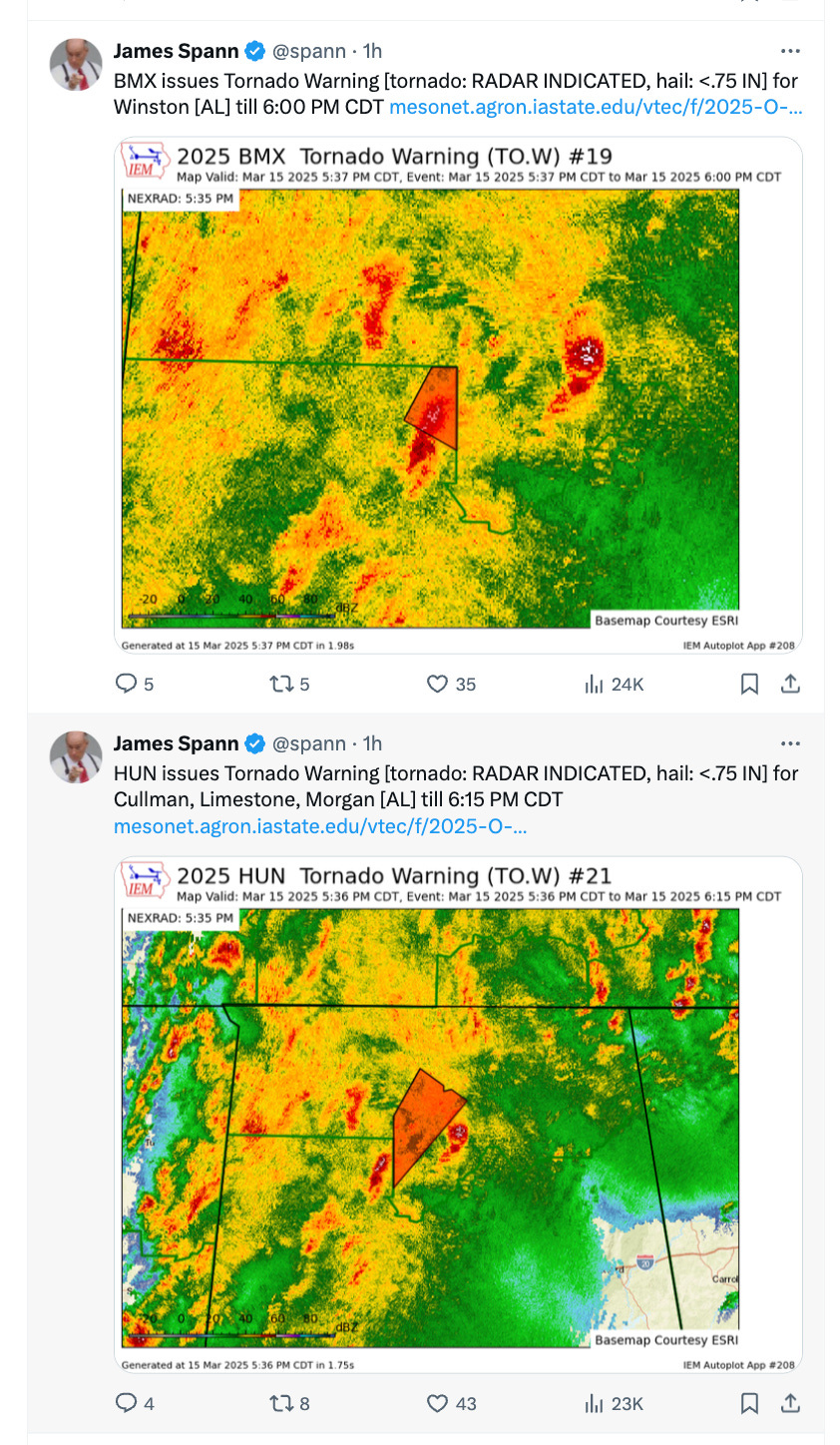
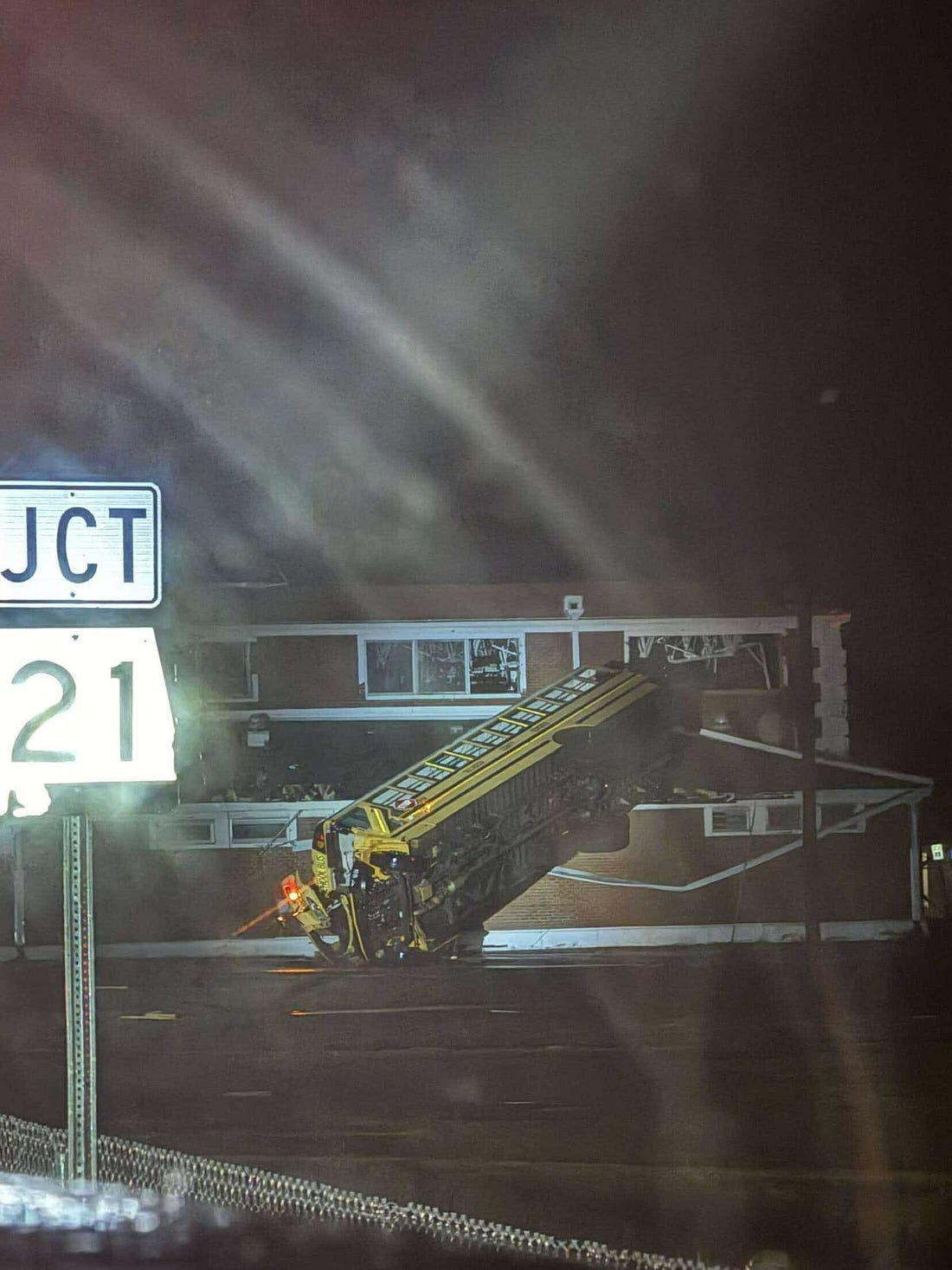

No comments:
Post a Comment
Note: Only a member of this blog may post a comment.